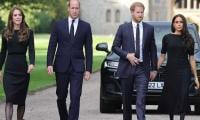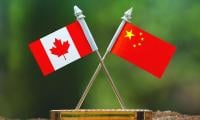JI to back Kashmir struggle within its means: Siraj
Says minorities have equal rights, can join Jamaat-e-Islami
By our correspondents
January 09, 2015
Jamaat-e-Islami (JI) Amir Sirajul Haq has said his party will continue to extend political, moral and diplomatic support to Kashmiris' freedom struggle against the Indian occupant army.
About the nature of the support, particularly men and material help, he says: "It will comprise every kind of support and cover everything within our means."
He believes that the freedom struggle in Kashmir has so far remained alive only because of Kashmiris, who have been waging a valiant war against Indian occupation and rendering invaluable sacrifices for their freedom.
Born to parents of a humble background in district Dir of Khyber-Pakhtunkhwa province, Sirajul Haq had been elected the JI Amir (chief) six months ago. He also served as a senior minister during the Muttahida Majlis-e-Aml (MMA) provincial government from 2002 to 2007, and is also serving in the same capacity currently in the coalition government, headed by Pakistan Tehreek-e-Insaf (PTI).
In an interview with The News panel recently, Sirajul Haq said the bulk of Pakistan's political and social problems had been caused by four martial laws the country experienced, wherein the military dictators made systematic attempts to undermine political institutions and ruin political culture.
He enumerated a number of issues like crippling of political institutions especially parliament, mushroom growth of pressure groups in political field, and insurgencies in Balochistan and other parts of the country which, he believes, were the result of replacing political acumen with the military power.
On the world scene, he says that global capitalist and secular forces have been conspiring to plunder the wealth and resources of the Muslim world through dictatorial and stooge leaders, helping them overthrow elected governments and installing military dictators in their place. He warned that Western colonists were using all their powers to block the way of genuine democracy taking roots in Pakistan, as it will result in setting up of an Islamists government and end of capitalists control over country's resources.
He believes that Pakistan's progress, development and bright future lay only in a strong democracy and dependable justice system on the principles of Quran and Sunnah. He says that as long as democratic process continues, all sectarian and other differences will remain subdued and conspiracies will never succeed. He says country's major issue is prevalence of differences on the basis of school of thought, which must be solved, adding that existence of five different seminary educations and examination boards based on five schools of thought are serving against the cause of unification of the countrymen.
On the Balochistan issue, Sirajul Haq said it is a complex problem caused by excessive use of military power there to quell demands for democratic rights and control over provinces' resources.
"Islamabad has been usurping rights of smaller provinces for long including those of Balochistan and KP.
"To resolve the issue, the Baloch must be embraced instead of pushing them against the wall. If I were given an opportunity, I would go to them, use every effort to appease all angry Baloch youth, persuade them to come down from mountains and join the mainstream national affairs," he adds.
He says Balochistan is a classic example of ineffective political governments and an effective establishment in the country. He says, "When political governments are corrupt, their prestige suffers and they lose decision-making power to the military establishment.
"Gen Musharraf's misadventures in Balochistan were the peak of mishandling of the problem for over four decades. Military power always proved a failure against political ideologies and movements all through the history.
We must learn from the UK and other countries like Iraq that they were eventually forced to have political solutions with the people of Scotland and Kurdistan."
Agreeing that the establishment in the country has been in control of political affairs, Siraj made it clear that political problems must never be left to the army generals to solve them. He says, "Armies could never succeed against their own citizens and for how long an army could be engaged inside the country."
Asked if the JI would again extend massive support to Kashmir Jihad like in the past, Siraj said the whole nation had supported Kashmir freedom struggle all through the history as Quaid-e-Azam Muhammad Ali had declared the state as the lifeline of the country. He said Islamabad must support Kashmir's liberation struggle.
About his conciliatory role in tussle between PML-N government and the PTI and Pakistan Awami Tehreek (PAT), Siraj said: "My main concern was to save the country from another takeover by the military and abrogation of the Constitution.
"There is room for improving this constitution but it is the best and the only constitution which has united and bound all four provinces as a single nation."
The JI chief claimed that a lobby had been conspiring in the country to change the Islamic character of the constitution or its abrogation altogether. "The country may never have another constitution of Islamic character which declared Qadiyanis as non-Muslim." Siraj said there was genuine danger of a martial law if the workers staging a sit-in and those of the ruling PML-N had clashed and resulted in bloodshed.
"I tried my best to save the country, the constitution and democracy, and the army from another martial law, as it always damages the army the most.
"It was in the army rule that East Pakistan was turned into Bangladesh, and conspiracies like Jinnah Pur, Sindhu Desh and independent Balochistan were hatched," he added.
"I am an Islamist, a progressive and constitutionalist. I always say we firmly believe in democracy, want supremacy of Islam and that people and the state should progress and develop," Siraj said.
Asked about the sudden rise of JI' political profile on national horizon, Siraj said all his party was doing was trying to liberate the politics from captivity of feudal and capitalists, whose next generations had also taken over civil and military establishments to tighten the noose around the poor masses, and plunder their resources by keeping them enslaved for the last 67 years.
"These feudal and capitalists became the unlawful successors of Quaid-e-Azam, and later on their generations written off bank loans and took huge kickbacks to make entire country hostage."
He claimed that common people, even the PPP activists, were now looking up to the JI as the only option in the country.
Sirajul Haq repeatedly parried the question and refrained from a direct answer to the impression that the establishment was now returning to the JI for the same strategic partnership it had enjoyed two decades back. To a question that whether such a progressive new outlook in the JI leadership's approach was because of him or was it a concerted policy of the party, Sirajul Haq replied that he believed that every human being was valuable and deserved respect.
"I invited a large number of minorities' representatives to our congregation in Lahore last month, including Christians, Hindus, Sikhs and others. I went to the heirs of Christian couple set ablaze in Kot Radha Kishan and arranged for their children's education in a school.
"I have always said that great men are those who love their nation and not only themselves. All countrymen including the poor, middle classes and the rich, vendors, shopkeepers and those earning livelihood on footpaths deserve equal respect and have equal rights.
"The JI folds are open for all of them irrespective of their religion, social strata, casts and creed. This attitude is the golden Islamic principle and the JI has always been pursuing it as a policy."
Sirajul Haq said the media had never shown the JI in its true colours and shades. He said with a smile, "Once I asked President Asif Zardari as to why his people called the JI a religious party. I told him that in fact the PPP should be called a religious party as its central leaders are noted descendants or custodians of holy shrines and Sufi chains, including Syed Qaim Ali Shah, Syed Yusuf Raza Gilani, Makhdoom Shah Mehmood Qureshi etc. Zardari laughed at it, and then asked about me. I told him that I was only an Islamist and nothing else."
About the concept of Islamic Khilafat and the demands of reverting to it, Sirajul Haq said: "Khalifah is just a symbolic term and it refers to the Imam (leader) of Muslims.
"As long as this leader is elected and implements Islam, he could be called as chancellor, president or the prime minister."
About Khilafat's unified global state and the concept that Islamic state had no definite boundaries, he said that concept would have to be proved through moral grounds and sincerity rather than power. He said if an Islamic government was established in Pakistan, it would resolve all issues, establish justice, make people prosperous and then there would be no need for having a nuclear bomb to conquer the world.
He said if articles 62 and 63 were implemented in letter and spirit, only clean people would reach the parliament.
To a question about denial of Allah's legislative powers to humans in the Khilafat system, Siraj said he was against the Western concepts of democracy where all immoral acts and sins were made constitutional through legislation. "By democracy, I always mean Islamic democracy and not that of the West," he added.
He said Islam is against forced conversion and it was proved by non-Muslims in majority on the lands once occupied by Muslims for centuries.
About militant groups, he said Taliban were only those inside Afghanistan fighting against occupant Nato armies. The small groups we hear about inside Pakistan are not Taliban, and added that has the state wanted it, it would have dealt with them tactfully much earlier. Even now, the state could solve this issue easily.
Siraj said Pakistan suffered because of large-scale involvement of external forces and their agencies in neighbouring Afghanistan for over three decades, especially those of the US, USSR, India and European countries. He said Gen Musharraf pushed Pakistan into the Afghan war.
Regarding an impression that before the present state of insurgency and even during it, most of those killed were Shias, he said prior to the Irani revolution and then Iran-Iraq war, Pakistan never underwent Shia-Sunni tension, which was a direct result of the upheaval in Iran.
He said terrorists had no religion. He said the JI had always condemned terrorism whether perpetrated by an individual, group or state. He said: "We have always condemned the economic and political terrorism such as politicians and powerful capitalists taking over public institutions like Wapda, banks etc., and plundering national wealth which was then legalised through notorious piece of legislations like the National Reconciliation Ordinance (NRO).
Asked if he condemned Lal Masjid cleric Maulana Abdul Aziz for his controversial remarks, Siraj said he did not listen to those, adding that any opinion by Maulana Abdul Aziz was his personal opinion and he did not like to comment on that.
He said if the justice system was strong and punishment was awarded to every criminal whether a common man, or a general, a judge or a politician, situation would change and the public confidence in the system would restore.
Siraj rejected an impression that the Islamabad sit-in was backed and funded by the army. He said Imran Khan had genuine grievances and what he wanted was a transparent inquiry.
He said the PAT used the Model Town tragedy to promote its politics and overthrow the government. He also rejected an impression that Dr Tahirul Qadri was working on Western agenda to realign Shia and Barelvi groups against Deobandi-Wahabi Taliban, who were fighting and resisting the Western armies for over 13 years in the region. He said there was no Wahabi political party in the country.
About the nature of the support, particularly men and material help, he says: "It will comprise every kind of support and cover everything within our means."
He believes that the freedom struggle in Kashmir has so far remained alive only because of Kashmiris, who have been waging a valiant war against Indian occupation and rendering invaluable sacrifices for their freedom.
Born to parents of a humble background in district Dir of Khyber-Pakhtunkhwa province, Sirajul Haq had been elected the JI Amir (chief) six months ago. He also served as a senior minister during the Muttahida Majlis-e-Aml (MMA) provincial government from 2002 to 2007, and is also serving in the same capacity currently in the coalition government, headed by Pakistan Tehreek-e-Insaf (PTI).
In an interview with The News panel recently, Sirajul Haq said the bulk of Pakistan's political and social problems had been caused by four martial laws the country experienced, wherein the military dictators made systematic attempts to undermine political institutions and ruin political culture.
He enumerated a number of issues like crippling of political institutions especially parliament, mushroom growth of pressure groups in political field, and insurgencies in Balochistan and other parts of the country which, he believes, were the result of replacing political acumen with the military power.
On the world scene, he says that global capitalist and secular forces have been conspiring to plunder the wealth and resources of the Muslim world through dictatorial and stooge leaders, helping them overthrow elected governments and installing military dictators in their place. He warned that Western colonists were using all their powers to block the way of genuine democracy taking roots in Pakistan, as it will result in setting up of an Islamists government and end of capitalists control over country's resources.
He believes that Pakistan's progress, development and bright future lay only in a strong democracy and dependable justice system on the principles of Quran and Sunnah. He says that as long as democratic process continues, all sectarian and other differences will remain subdued and conspiracies will never succeed. He says country's major issue is prevalence of differences on the basis of school of thought, which must be solved, adding that existence of five different seminary educations and examination boards based on five schools of thought are serving against the cause of unification of the countrymen.
On the Balochistan issue, Sirajul Haq said it is a complex problem caused by excessive use of military power there to quell demands for democratic rights and control over provinces' resources.
"Islamabad has been usurping rights of smaller provinces for long including those of Balochistan and KP.
"To resolve the issue, the Baloch must be embraced instead of pushing them against the wall. If I were given an opportunity, I would go to them, use every effort to appease all angry Baloch youth, persuade them to come down from mountains and join the mainstream national affairs," he adds.
He says Balochistan is a classic example of ineffective political governments and an effective establishment in the country. He says, "When political governments are corrupt, their prestige suffers and they lose decision-making power to the military establishment.
"Gen Musharraf's misadventures in Balochistan were the peak of mishandling of the problem for over four decades. Military power always proved a failure against political ideologies and movements all through the history.
We must learn from the UK and other countries like Iraq that they were eventually forced to have political solutions with the people of Scotland and Kurdistan."
Agreeing that the establishment in the country has been in control of political affairs, Siraj made it clear that political problems must never be left to the army generals to solve them. He says, "Armies could never succeed against their own citizens and for how long an army could be engaged inside the country."
Asked if the JI would again extend massive support to Kashmir Jihad like in the past, Siraj said the whole nation had supported Kashmir freedom struggle all through the history as Quaid-e-Azam Muhammad Ali had declared the state as the lifeline of the country. He said Islamabad must support Kashmir's liberation struggle.
About his conciliatory role in tussle between PML-N government and the PTI and Pakistan Awami Tehreek (PAT), Siraj said: "My main concern was to save the country from another takeover by the military and abrogation of the Constitution.
"There is room for improving this constitution but it is the best and the only constitution which has united and bound all four provinces as a single nation."
The JI chief claimed that a lobby had been conspiring in the country to change the Islamic character of the constitution or its abrogation altogether. "The country may never have another constitution of Islamic character which declared Qadiyanis as non-Muslim." Siraj said there was genuine danger of a martial law if the workers staging a sit-in and those of the ruling PML-N had clashed and resulted in bloodshed.
"I tried my best to save the country, the constitution and democracy, and the army from another martial law, as it always damages the army the most.
"It was in the army rule that East Pakistan was turned into Bangladesh, and conspiracies like Jinnah Pur, Sindhu Desh and independent Balochistan were hatched," he added.
"I am an Islamist, a progressive and constitutionalist. I always say we firmly believe in democracy, want supremacy of Islam and that people and the state should progress and develop," Siraj said.
Asked about the sudden rise of JI' political profile on national horizon, Siraj said all his party was doing was trying to liberate the politics from captivity of feudal and capitalists, whose next generations had also taken over civil and military establishments to tighten the noose around the poor masses, and plunder their resources by keeping them enslaved for the last 67 years.
"These feudal and capitalists became the unlawful successors of Quaid-e-Azam, and later on their generations written off bank loans and took huge kickbacks to make entire country hostage."
He claimed that common people, even the PPP activists, were now looking up to the JI as the only option in the country.
Sirajul Haq repeatedly parried the question and refrained from a direct answer to the impression that the establishment was now returning to the JI for the same strategic partnership it had enjoyed two decades back. To a question that whether such a progressive new outlook in the JI leadership's approach was because of him or was it a concerted policy of the party, Sirajul Haq replied that he believed that every human being was valuable and deserved respect.
"I invited a large number of minorities' representatives to our congregation in Lahore last month, including Christians, Hindus, Sikhs and others. I went to the heirs of Christian couple set ablaze in Kot Radha Kishan and arranged for their children's education in a school.
"I have always said that great men are those who love their nation and not only themselves. All countrymen including the poor, middle classes and the rich, vendors, shopkeepers and those earning livelihood on footpaths deserve equal respect and have equal rights.
"The JI folds are open for all of them irrespective of their religion, social strata, casts and creed. This attitude is the golden Islamic principle and the JI has always been pursuing it as a policy."
Sirajul Haq said the media had never shown the JI in its true colours and shades. He said with a smile, "Once I asked President Asif Zardari as to why his people called the JI a religious party. I told him that in fact the PPP should be called a religious party as its central leaders are noted descendants or custodians of holy shrines and Sufi chains, including Syed Qaim Ali Shah, Syed Yusuf Raza Gilani, Makhdoom Shah Mehmood Qureshi etc. Zardari laughed at it, and then asked about me. I told him that I was only an Islamist and nothing else."
About the concept of Islamic Khilafat and the demands of reverting to it, Sirajul Haq said: "Khalifah is just a symbolic term and it refers to the Imam (leader) of Muslims.
"As long as this leader is elected and implements Islam, he could be called as chancellor, president or the prime minister."
About Khilafat's unified global state and the concept that Islamic state had no definite boundaries, he said that concept would have to be proved through moral grounds and sincerity rather than power. He said if an Islamic government was established in Pakistan, it would resolve all issues, establish justice, make people prosperous and then there would be no need for having a nuclear bomb to conquer the world.
He said if articles 62 and 63 were implemented in letter and spirit, only clean people would reach the parliament.
To a question about denial of Allah's legislative powers to humans in the Khilafat system, Siraj said he was against the Western concepts of democracy where all immoral acts and sins were made constitutional through legislation. "By democracy, I always mean Islamic democracy and not that of the West," he added.
He said Islam is against forced conversion and it was proved by non-Muslims in majority on the lands once occupied by Muslims for centuries.
About militant groups, he said Taliban were only those inside Afghanistan fighting against occupant Nato armies. The small groups we hear about inside Pakistan are not Taliban, and added that has the state wanted it, it would have dealt with them tactfully much earlier. Even now, the state could solve this issue easily.
Siraj said Pakistan suffered because of large-scale involvement of external forces and their agencies in neighbouring Afghanistan for over three decades, especially those of the US, USSR, India and European countries. He said Gen Musharraf pushed Pakistan into the Afghan war.
Regarding an impression that before the present state of insurgency and even during it, most of those killed were Shias, he said prior to the Irani revolution and then Iran-Iraq war, Pakistan never underwent Shia-Sunni tension, which was a direct result of the upheaval in Iran.
He said terrorists had no religion. He said the JI had always condemned terrorism whether perpetrated by an individual, group or state. He said: "We have always condemned the economic and political terrorism such as politicians and powerful capitalists taking over public institutions like Wapda, banks etc., and plundering national wealth which was then legalised through notorious piece of legislations like the National Reconciliation Ordinance (NRO).
Asked if he condemned Lal Masjid cleric Maulana Abdul Aziz for his controversial remarks, Siraj said he did not listen to those, adding that any opinion by Maulana Abdul Aziz was his personal opinion and he did not like to comment on that.
He said if the justice system was strong and punishment was awarded to every criminal whether a common man, or a general, a judge or a politician, situation would change and the public confidence in the system would restore.
Siraj rejected an impression that the Islamabad sit-in was backed and funded by the army. He said Imran Khan had genuine grievances and what he wanted was a transparent inquiry.
He said the PAT used the Model Town tragedy to promote its politics and overthrow the government. He also rejected an impression that Dr Tahirul Qadri was working on Western agenda to realign Shia and Barelvi groups against Deobandi-Wahabi Taliban, who were fighting and resisting the Western armies for over 13 years in the region. He said there was no Wahabi political party in the country.
-
 Prince Harry, Meghan Markle Make Major Change To Strategy To Please Royal Family
Prince Harry, Meghan Markle Make Major Change To Strategy To Please Royal Family -
 Chester Bennington’s Mental Health Story And Lasting Legacy
Chester Bennington’s Mental Health Story And Lasting Legacy -
 John Cusack Gears Up To Give Fans Exciting Surprise On Late-night Television
John Cusack Gears Up To Give Fans Exciting Surprise On Late-night Television -
 Yerin Ha Opens Up About Shocking Diagnosis Post ‘Bridgerton’ Season 4
Yerin Ha Opens Up About Shocking Diagnosis Post ‘Bridgerton’ Season 4 -
 Meghan Markle, Harry Leave King Charles, Prince William Furious With Latest Move
Meghan Markle, Harry Leave King Charles, Prince William Furious With Latest Move -
 NASA Announces New Artemis Moon Mission Aimed At Expanding Astronauts’ Exploration Efforts
NASA Announces New Artemis Moon Mission Aimed At Expanding Astronauts’ Exploration Efforts -
 Everything To Know About Justin Bieber's Facial Paralysis
Everything To Know About Justin Bieber's Facial Paralysis -
 Morgan Stanley Predicts AI To Replace Tasks Not Workers
Morgan Stanley Predicts AI To Replace Tasks Not Workers -
 Anthropic Dario Amodei Calls White House Response ‘retaliatory’ In AI Safety Dispute
Anthropic Dario Amodei Calls White House Response ‘retaliatory’ In AI Safety Dispute -
 Savannah Guthrie Speculations 'sadly' Coming True About Mother Nancy
Savannah Guthrie Speculations 'sadly' Coming True About Mother Nancy -
 Tia Mowry Breaks Silence On Angelina Jolie Asking 'unbelievably' Personal Question: 'Wilder'
Tia Mowry Breaks Silence On Angelina Jolie Asking 'unbelievably' Personal Question: 'Wilder' -
 Trump Administration Warns Of Slow Payouts For Tariff Refunds Amid Intensifying Trade Disputes
Trump Administration Warns Of Slow Payouts For Tariff Refunds Amid Intensifying Trade Disputes -
 Princess Beatrice 'far From Comfortable' After Father Andrew's Arrest
Princess Beatrice 'far From Comfortable' After Father Andrew's Arrest -
 Sarah Ferguson’s Dual Cancer Journey
Sarah Ferguson’s Dual Cancer Journey -
 GTA 6 Security: Rockstar Blocks Leaks Ahead Of Launch
GTA 6 Security: Rockstar Blocks Leaks Ahead Of Launch -
 Demi Moore's New Look At Milan Fashion Week Sparks Serious Concern
Demi Moore's New Look At Milan Fashion Week Sparks Serious Concern



